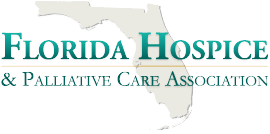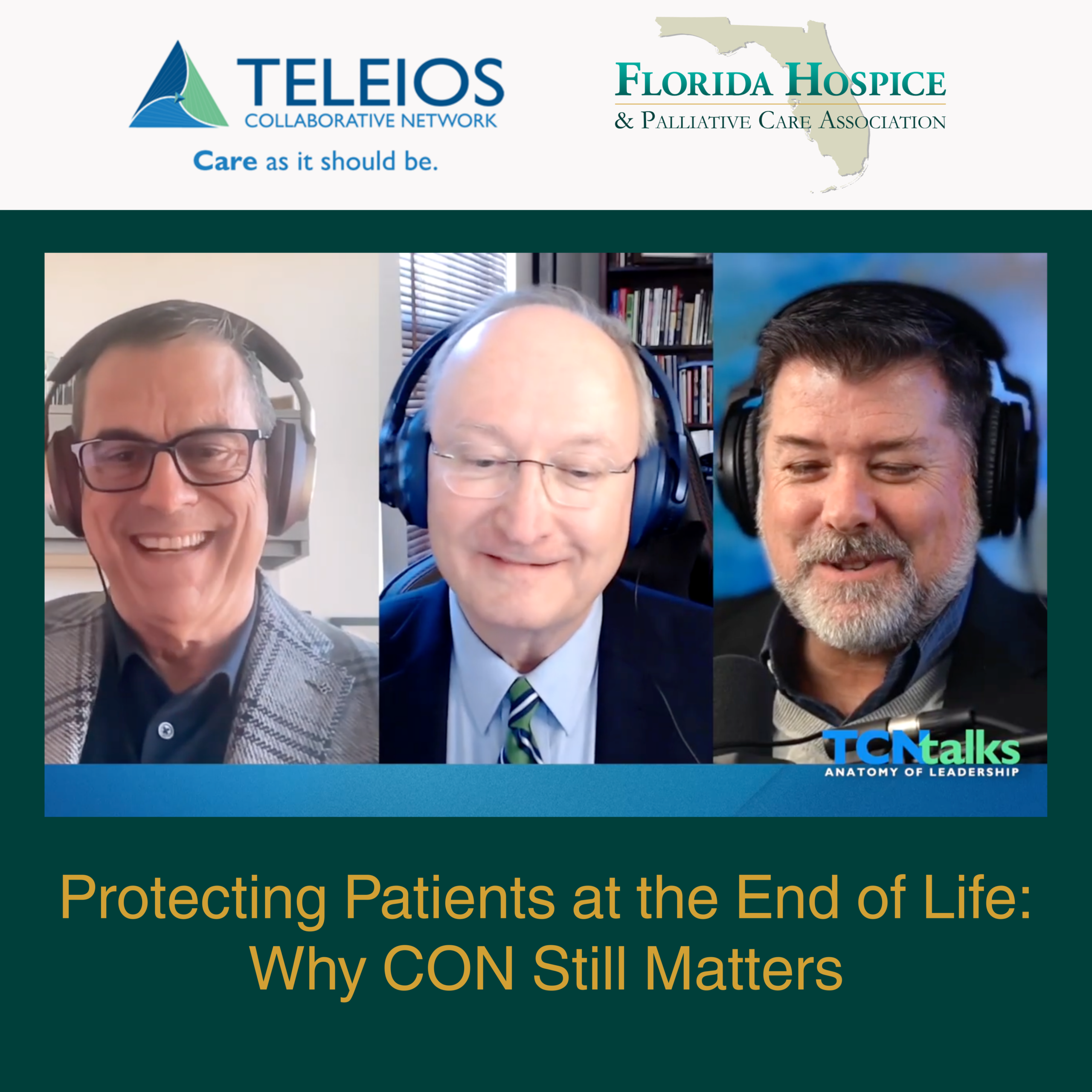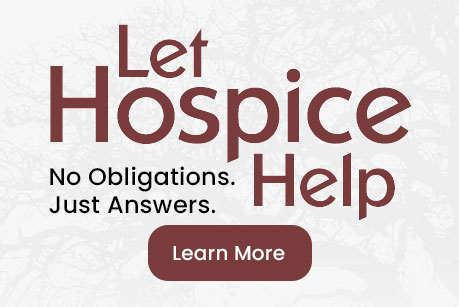Seven Songs for a Long Life Director comes to Forum 2017 Dr. Amy Hardie is a internationally award winning documentary film director whose latest film Seven Songs for a Long Life, follows five patients in a large Scottish hospice….
Exclusive Film Screening at Forum 2017
News
Our CEO, Paul A. Ledford, along with the CEO of the Association for Home & Hospice Care of North Carolina, Tim Rogers, joined Chris Comeaux on the TCN Talks Anatomy of Leadership podcast (Teleios Collaborative Network). They discussed protecting patients…
Upcoming Events
Sun
Mon
Tue
Wed
Thu
Fri
Sat
S
M
T
W
T
F
S
1
2
3:00 PM - Hospice Nurses & Hospice Aides
3:00 PM - Volunteer Recruitment & Training
6
7
8
9
3:00 PM - Developing a Workplace Violence Program
13
14
15
16
20
21
22
23
27
28
1
2
3:00 PM - Hope Is Not a Strategy
6
7

The word "hospice" is often difficult for patients and caregivers to hear after battling an extended illness or when an acute medical condition strikes. Each patient referred to hospice brings a unique experience that resulted in a terminal prognosis and at times referrals are made with minimal information shared about the hospice philosophy. This session will provide guidance and examples for hospice team members to utilize when meeting with patients and families for the first time. Tips on presenting and answering questions regarding the hospice election and addendum statements will be provided. Discussion will address frequent concerns and questions that patients and caregivers have and provide guidance that supports and guide patients as they navigate the final chapter of their lives.

Agencies are balancing rising call volumes, staffing pressures, and growing expectations for timely, patient-centered support across daytime and after-hours operations. In this session, we'll review the key cost pressures facing Home Health and Hospice in 2026, from year-over-year funding cuts to escalating labor costs and break down practical strategies organizations can use to manage demand more efficiently.

Healthcare workers experience workplace violence injuries at rates five times higher than other occupations, with nearly half of all nonfatal workplace violence injuries occurring in this sector.
Join this insightful session to learn how to meet evolving requirements with a proactive, structured approach that safeguards your teams and promotes a safer care environment.

When tension rises, calm becomes your greatest strength.
This energizing session shows how subtle shifts in tone, timing, and mindset can transform challenging moments into meaningful connections. Learn practical strategies to stay steady, protect your well-being, and respond in ways that bring out the best in both yourself and others.

In today’s challenging sales landscape, leaders need the ability to truly understand and inspire their teams more than ever.
This practical webinar will reveal a clear framework for coaching sales reps with clarity, empathy, and impact. With a focus on mindset, communication, and practical action steps, this dynamic session will empower sales leaders to unlock stronger performance, build trust, and lead a motivated, high impact team.

Unlock the vital role of social workers, counselors, spiritual caregivers, and chaplains in Medicare hospice compliance.
In this targeted session, masterful speaker Kathy Ahearn will explore how these key team members can strengthen quality reporting, ensure regulatory adherence within the interdisciplinary team, and elevate patient care through strategic visits and timely plan of care updates.

Emotional responses are a natural, invaluable part of palliative and hospice care, offering deep insights that shape how you connect with patients, make decisions, and deliver compassionate interventions.
In a field where connection is everything, mastering the dynamics between your feelings and care delivery is critical. This is a great course for every member of the hospice team to learn how to navigate the challenges of this deeply relational work with confidence and clarity.

Transform your hospice QAPI from a data obligation into a true performance engine.
In this fast-paced session, you’ll learn how to move beyond spreadsheets and reports to pinpoint priority issues in real time, uncover the real “why” with practical root cause tools, and build PI plans your team can actually execute. Elevate your QAPI program and transform data into lasting impact — one improvement at a time.

An effective plan of care guides hospice care delivery and meets regulatory requirements.
The interdisciplinary group establishes the plan, incorporating input from the patient, family, attending physician, and team members to ensure comprehensive, measurable outcomes. Join this in-depth session for guidance on developing and updating an individualized hospice plan of care that will address evolving patient and caregiver needs.

AI can make your hospice or home care business soar — or sink it fast.
Used wisely, ChatGPT can boost efficiency, streamline communications, and ease administrative burdens. Used carelessly, it can trigger HIPAA violations, privacy breaches, and serious reputational damage. Learn how to harness AI’s power safely and responsibly without putting your patients, your staff, or your organization at risk.

Join us in this high-impact session that will dive into three essential self-awareness competencies at the core of emotional intelligence: emotional self-awareness, accurate self-assessment, and self-confidence. Learn to recognize emotional triggers, evaluate strengths and blind spots more honestly, and show up with greater confidence in challenging situations.

Is your program strong enough to withstand the next surveyor’s questions? This focused webinar will walk hospice leaders and volunteer managers through today’s expectations for a fully functioning volunteer program, including the 5% requirement, qualifying activities, and current surveyor hot buttons. Learn the defined roles of the volunteer director/manager and volunteers, what does and does not qualify toward the 5%, and the core elements of a Medicare-compliant volunteer training program.

This session will walk you through that transformative journey from case study and methodology to deployment and execution — showing how a living strategic plan can fuel mission‑driven success in today’s complex hospice and healthcare environment. Learn how rolling operating plans turn strategy into action, driving year‑over‑year gains in quality, growth, and financial performance while keeping your organization agile, aligned, and ready for what’s next.


